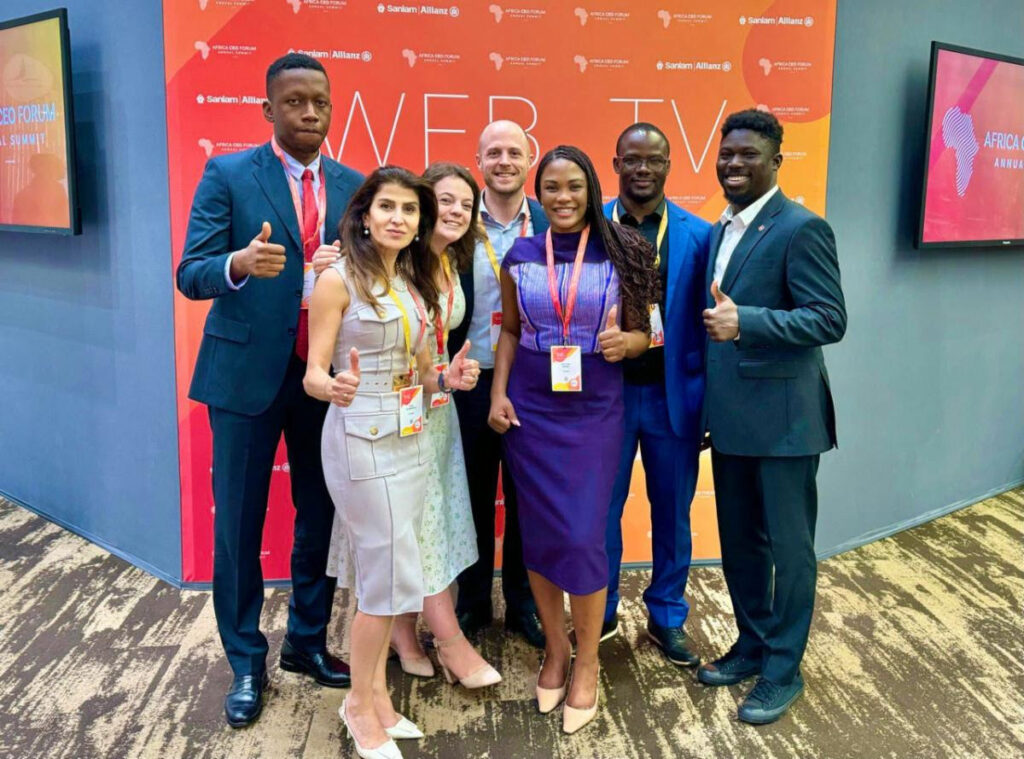In a gathering that captured both the urgency and promise of technological progress across Africa, Yango and a constellation of stakeholders met at the Tech Safari Summit 2025 in Nairobi to deliberate on how best to scale growth, innovation and regulation in the continent’s digital ecosystem. What unfolded was more than panel discussions — it was a vision-casting session that blended policy, investment, and community in real time.
Yango’s leadership, regulators, policy makers, investors, and local tech practitioners took to the floor to chart a path forward — one where technology doesn’t just serve, but empowers communities; where regulation doesn’t stifle but safeguards; and where growth is deep, not just broad.
Table of Contents

Key Themes: Regulation, Localisation, Partnerships
Three major threads wove themselves through the conversations at Tech Safari: regulatory frameworks, localised innovation, and strategic partnerships.
Regulation as Enabler, Not Barrier
Speakers stressed that without clear, consistent regulations, Africa’s tech potential may remain just that—a potential. Yango’s Vice President for Public Policy in Africa, Zanyiwe Asare, emphasised that regulation must evolve alongside technology, balancing consumer protection and innovation. She called for responsive regulatory regimes that understand the pace of change rather than lag behind it.
Policy makers present acknowledged past missteps—regulation imposed with little stakeholder input, or lagging legal frameworks exposed to manipulation or ambiguity. Moving forward, there was agreement that policies should be co-designed: tech firms, regulators, civil society and users should all have seats at the table.
Local Innovation & Ecosystem Building
One recurring refrain: Africa must produce more than just tech consumers. It must foster creators. Yango’s footprint, which now spans over a dozen African countries, has expanded beyond ride-hailing into payments, deliveries, mapping and more. The company’s recent initiatives were cited as examples of pushing local entrepreneurship, talent development, and technology adaptation relevant to African markets.
To illustrate: Yango’s Yango Tech arm supports millions of orders globally, integrating AI tools, enhancing logistics, and offering localised solutions in e-commerce and retail. The firm’s approach has underlined that the local ecosystem—startups, SMEs, tech hubs—must be nurtured. Stakeholders argued for more investment in skills, research & development, incubators, and localised R&D in universities.
Partnerships Across Sectors & Boundaries
No single actor can scale Africa’s tech future alone. It was widely agreed that public-private cooperation, cross-border collaboration, and multi-sector alliances are essential. Yango’s role was painted as that of a connector: between capital and ideas, between global tech standards and local needs.
One striking example is Yango Ventures, the corporate venture arm launched to channel funds into promising early-stage startups in Sub-Saharan Africa, LATAM and MENAP regions. The fund — US$20 million to start — aims to back ventures in fintech, B2B SaaS, and online-to-offline solutions. This was hailed as a positive move, signalling Yango’s commitment to invest in the future rather than merely grow existing business lines.
Opportunities and Challenges: On the Ground Realities
While optimism was high, participants were candid about the obstacles. Many of these are familiar but bear fresh urgency given how fast the world is moving.
Infrastructure Gaps: Reliable power, connectivity, and last-mile logistics remain weak links in many parts of Africa. A stable internet, affordable data, dependable delivery networks—these are non-negotiable for tech to flourish.
Talent & Education: There is a shortage of engineers, data scientists, and AI specialists who understand context. Universities need updated curricula; governments must fund science & tech more sustainably. There were pleas for bridging the gap between academic training and industry needs, so graduates are not only theoretically competent but also practically ready.
Regulatory Uncertainty: Some countries lack legal frameworks around data protection, cross-border data flows, taxation of digital services, or digital identity. Where laws exist, enforcement is uneven. Stakeholders called for harmonisation — not every country needs identical laws, but mutual recognition, clarity, and compatibility help regional scaling.
Access to Capital: Early-stage startups often struggle with seed funding; growth-stage firms may find scaling across borders expensive or risky. Currency risk, political risk, and regulatory shifts can scare away investors. Hence, policy incentives (tax breaks, grants, public-venture co-funding) were proposed as tools to reduce risk and enable capital flow.
User Trust and Ethics: As more people rely on digital platforms for transport, delivery, payments, etc., issues of privacy, cybersecurity, fair pricing, and consumer protection become more urgent. Trust is fragile; missteps in data leaks or unfair practices could undermine progress.

Way Forward: Actionable Strategies & Commitments
From the discussions emerged a series of strategies and proposed commitments — some by Yango, others by governments, investors, tech hubs, and regulators.
- Co-creation of Policy and Regulation
Governments are committed to opening more consultative platforms, engaging tech firms and civil society when crafting digital policies. Yango signalled its readiness to work with regulators as early collaborators to shape frameworks that support innovation while protecting citizens. - Scaling Local Talent & Innovation
Yango pledged greater investment in its fellowship programmes, tech education, and incubation. There was consensus on supporting universities, bootcamps, mentorship, and building capacity not just in big cities but in secondary hubs too. - Deploying Capital Strategically
With Yango Ventures already operational, stakeholders urged more such vehicles. Governments and development finance institutions were encouraged to partner in co-funding, reducing investment risks. There was a push for impact-oriented funding — where returns are measured not just financially but in social and infrastructural outcomes. - Technology as Leverage Across Sectors
Tech must not be siloed. Stakeholders highlighted how technology overlays sectors like agriculture, health, logistics, transport, and energy. Yango itself is blending its offerings (ride-hailing, delivery, payments) to provide super-app-like convenience, while also enabling third-party partners (SMEs, retailers) to tap into its platforms. - Regional Integration & Standardisation
To fully benefit, cross-border regulatory harmonisation is needed — e.g., data regulation, digital taxation, and payment systems compatibility. Yango’s presence across many African markets gives it a vantage point to help lobby for regional standards, share best practices, and help smaller markets leapfrog inefficient structures. - Ethics, Trust & Consumer Protection
Stakeholders called for stronger data protection regimes, better customer grievance redress mechanisms, transparency in pricing algorithms and delivery times. Yango and other firms were challenged to embed ethics and user trust in product designs from day one.
Yango’s Role: More Than a Tech Player
Yango is not just a company pitching ideas at summits. Its recent moves show a deeper strategic engagement with Africa’s tech transformation.
- The launch of Yango Ventures signalled a shift from being simply a platform operator to being an ecosystem builder.
- The development of Yango Tech, which supports millions of orders globally, has been central in enabling not only its own services but also powering partner businesses in retail and logistics with AI-based tools.
- Yango’s expansion into payments, mapping, delivery, food, and super-app utilities reflects its ambition to serve multiple everyday needs, not just transport. By doing so, it deepens its relevance across society — to consumers, to small businesses, to government services.

Conclusion: A New Chapter in Africa’s Tech Narrative
The summit in Nairobi was not just about Yango or any single company. It reflected a shifting mindset: that Africa’s tech potential lies not just in adoption but in creation; not just in investment but in inclusive ecosystems; not just in regulation for regulation’s sake but for purpose.
As Yango and its stakeholders discuss tech growth, what emerges is a roadmap: one that demands patience, collaboration, and bold thinking. Regulatory frameworks must evolve fast, education systems must align with industry, talent must be nurtured, and trust must be earned.
If these pieces fall into place, Africa could leapfrog several stages of tech development, and not just catch up with the world but set new patterns — of super-apps that integrate essential services; of startups born in smaller towns scaling across borders; of policies that support innovation rather than hinder it.
Yango’s role is critical in that journey — as investor, partner, builder — but it will only succeed if its stakeholders — governments, regulators, investors, and communities — lean in with equal commitment. When they do, the promise of tech growth in Africa could become the story of shared success.
Join Our Social Media Channels:
WhatsApp: NaijaEyes
Facebook: NaijaEyes
Twitter: NaijaEyes
Instagram: NaijaEyes
TikTok: NaijaEyes





